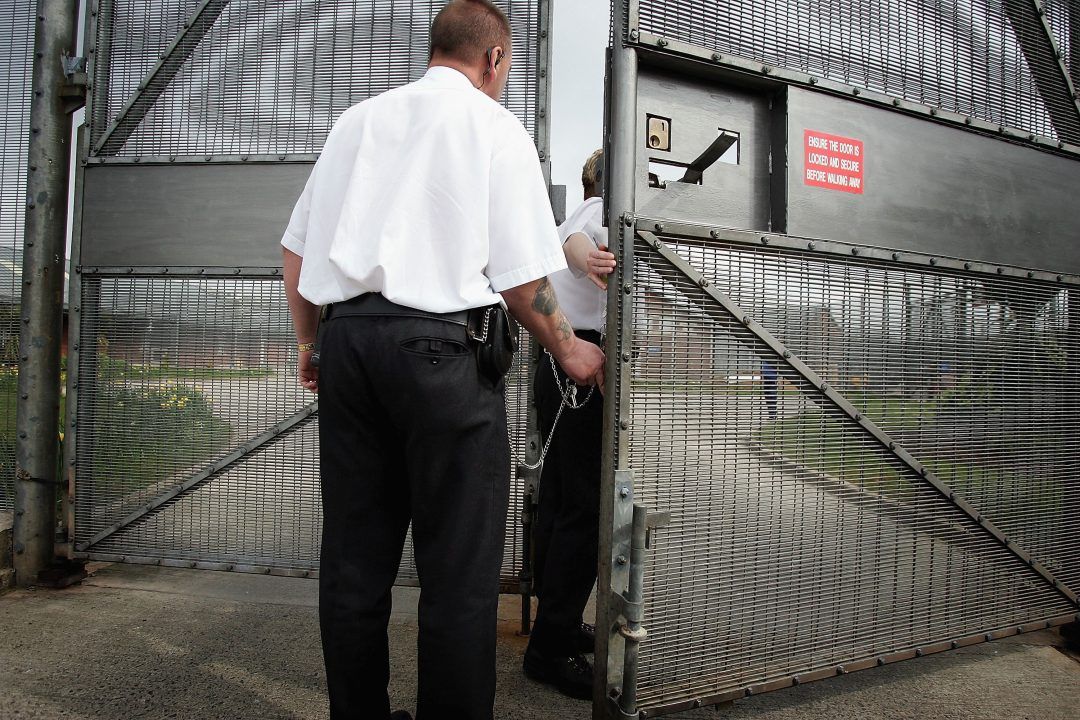Key Points
-
 Dozens of criminals who were freed in the emergency early release scheme are back behind bars after ‘reoffending’
Dozens of criminals who were freed in the emergency early release scheme are back behind bars after ‘reoffending’ -
 During the summer almost 500 people were released from custody in a bid to combat overcrowding in jails
During the summer almost 500 people were released from custody in a bid to combat overcrowding in jails -
 A Scottish Government report predicts the prison population could exceed capacity by 1,000 inmates December
A Scottish Government report predicts the prison population could exceed capacity by 1,000 inmates December
More than 50 prisoners freed in the emergency early release programme this summer have returned to custody after alleged reoffending.
During June and July this year, 477 people serving four-year sentences were released early in a bid to combat overcrowding.
It has now been revealed that 57 returned to custody with most for alleged violent crimes or crimes of dishonesty.
A dozen of the criminals were back in jail less than ten days after being released. With 34 arrested within a month of gaining their freedom.
A Scottish Prison Service spokesperson said: “Working with the Scottish Government, and our partners, we delivered an Emergency Early Release (EER) programme, which prioritised the safety and wellbeing of those in our care, victims, and the communities we serve.
“We have been open and transparent throughout, publishing the number of individuals released at each stage, followed by a series of breakdowns. The latest publication on returns to custody continues this approach.
“While EER provided much needed respite to our establishments, staff, and those in our care, it was always recognised that this was a temporary measure. In recent months, our population has risen sharply once more, and remains extremely complex.
“This continues to have a significant impact on our staff and the time available to them to do the important work in supporting people, building relationships, turning lives around, reducing the risk of reoffending, and creating a safer Scotland for all.”
Kate Wallace, Chief Executive of Victim Support Scotland, said: “We commend the Scottish Prison Service for its transparency about the impact of the Emergency Early Release Scheme. However, sadly our fears around the number of prisoners released and subsequently returned to custody have been realised. With 57 people being sent back to prison before their original release date, we fear that many more new victims have been created, with the worrying knowledge that most of those crimes are categorised as violent offences (35%).
“Whilst the full extent of reoffending of early release prisoners is not yet known, these early figures are a cause for significant concern given that most of these prisoners have been living in the community for just a matter of weeks.
“The majority (60%) of those re-entered prison within just 20 days of their emergency release, and this highlights the need to completely re-think emergency release proposals. It also emphasises the need for adequate preparation, rehabilitation, and availability of services on release.
“With prison population figures only predicted to keep rising and Scottish Government ministers repeatedly saying these were only temporary measures, we would urge them to voice a swift response to what long-term measures are planned to counteract this.
“Any future measures need to have victims at heart, including the long-awaited revamp of the failing Victim Notification Scheme – only 2% of victims were notified of their perpetrator’s early release. The cycle of early release and reoffending only creates more people impacted by crime, and places additional stress on the criminal justice system and support services in Scotland. We are calling for urgent measures by the Scottish Government to address this.”
The Scottish Government said the early release scheme had been “necessary”.
A spokesperson said: “Whilst no level of reoffending is acceptable and we do not want any more victims of crime, the return to custody rate for those released under the scheme was substantially lower than the average reconviction rate of those serving four years or less.
“The early release scheme for some short-term prisoners was necessary so prisons could continue to function safely and effectively following a sharp and unexpected rise in the prison population.
“Public safety was paramount, with only those serving less than four years considered, with the majority eligible for release having 90 days or less left to serve. There were specific safeguards built into the process, including exclusions for those serving domestic abuse and sexual offences, and a governor power of veto for those prisoners deemed an immediate risk to a specific individual or group.”
Scottish Conservative leader Russell Findlay said: “We warned that the SNP’s decision to set free hundreds of prisoners before they’d done their time would result in more crime on Scotland’s streets – and that’s exactly what has happened.
“Despite knowing this to be inevitable, ministers still decided to recklessly open the prison gates.”
Follow STV News on WhatsApp
Scan the QR code on your mobile device for all the latest news from around the country




























